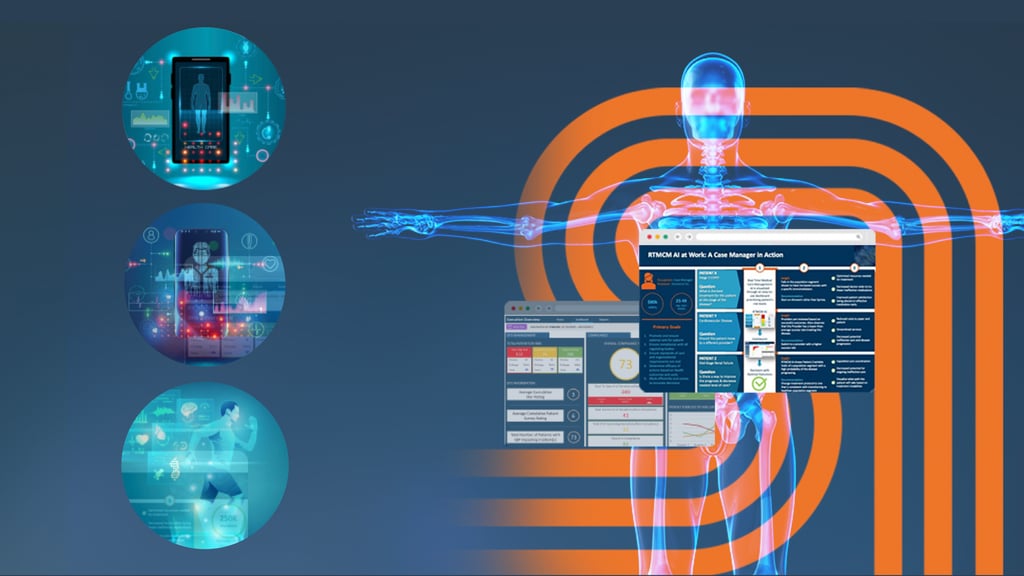
The healthcare worker shortage is here.
In the United States alone, the Association of American Medical Colleges estimates there will be a shortage of between 37,800 and 124,000 physicians by 2034, equivalent to 13.2% of all physicians in the US.
For patients, the impact of this shortage is significant: higher costs and delays in receiving critical care, which can mean the difference in their recovery.
To overcome these delays, healthcare specialists are working longer hours while also spending less time per patient. The result? Healthcare workers have become overwhelmed, and the time spent per patient has declined significantly. This directly impacts the level of personalization and the quality of care that can be delivered to patients.
To highlight the implication of this, according to McKinsey, over a third of emergency department visits are preventable, resulting in part because of poor care management. This doesn’t just impact the quality of care – it is also extremely expensive for both patients and payers. These unnecessary emergency department visits alone already cost an estimated $22B per year. As the healthcare worker shortage increases over time, so will the costs of care.
So, what options are available to solve this combined challenge of decreased quality of care and rising costs? The answer lies in applying emerging artificial intelligence towards hyper-personalized patient analysis and treatment.
Why the time is now for personalized patient care with AI and deep learning
The opportunity to apply deep learning in healthcare is well documented. In fact, McKinsey and Co estimates that deep learning has the potential to deliver $307B in annual value creation in healthcare, with much of this potential focused on improving patient care. In fact, according to a recent healthcare survey from the Deloitte Center for Health Solutions, “better patient satisfaction/engagement” and “improved quality of care and patient outcomes” were the top two outcomes expected from digital transformation.
This significant AI opportunity in healthcare has been driven by three key industry shifts:
- More Data: The availability of a large amount of insight-rich data (both structured and unstructured), resulting from the healthcare industry’s digital transformation that has occurred over the past few years. Yet most healthcare payers and systems have been limited to using samples to perform analytics and draw conclusions.
- Domain Specific AI: Increasing specialization of models with a specific focus on healthcare has led to vastly improved performance, accuracy and intelligence of models. For example, the amount of computer vision research which was focused on medical imaging benchmarks increased by 733% year over year.
- Next Generation AI Platforms: The introduction of specialized AI platforms and infrastructure, which have been purpose built for state-of-the-art deep learning models, is enabling healthcare organizations to develop and deploy sophisticated AI models which would not have been possible or practical with previous generation technology.
The convergence of these three factors presents a game-changing opportunity for AI in the healthcare industry: hyper-personalization at scale to improve patient care and outcomes, helping care managers proactively identify at-risk patients and to use data to determine the best treatment.
So, given this incredible potential, why hasn’t every healthcare organization gotten started?
The reality is that building and implementing these AI capabilities is incredibly complex, expensive, and time consuming: organizations need to recruit and hire hard-to-find top data science talent as well as deploy complex and specialized technical infrastructure. This is no simple task – 48% of executive responses to Deloitte’s survey on digital transformation in healthcare list “talent/skill set” as a barrier to digital transformation, 66% of AI investments fail because they are built individually instead of utilizing a proven product, and Harvard Business Review estimates that most AI transformations take between 18-36 months.
With the healthcare worker shortage already here, healthcare organizations can’t wait years – they need solutions that can accelerate and improve patient outcomes today.
That is why SambaNova Systems and DeLorean AI are excited to announce a new Medical AI subscription based, fully functional product that will empower healthcare organizations with artificial intelligence delivering hyper-personalized care that classifies risk levels of a patient, predicts disease onset, and recommends next best-actions of treatment that can drive better health outcomes and decrease cost. In addition, the system can potentially find undiagnosed patients, such as pre pre diabetics or CKD patients in stage 1 or 2 that do not know they have the disease.
Medical AI delivers a pre-trained AI model that is seamlessly deployed through SambaNova’s Dataflow-as-a-Service platform. That means healthcare organizations can skip past the need to train and develop their own model and focus on what matters most: improving patient outcomes and care.
AI is here to overcome the healthcare worker shortage and start improving patient care today. You can learn more about this new Medical AI solution on our Medical AI page here.


